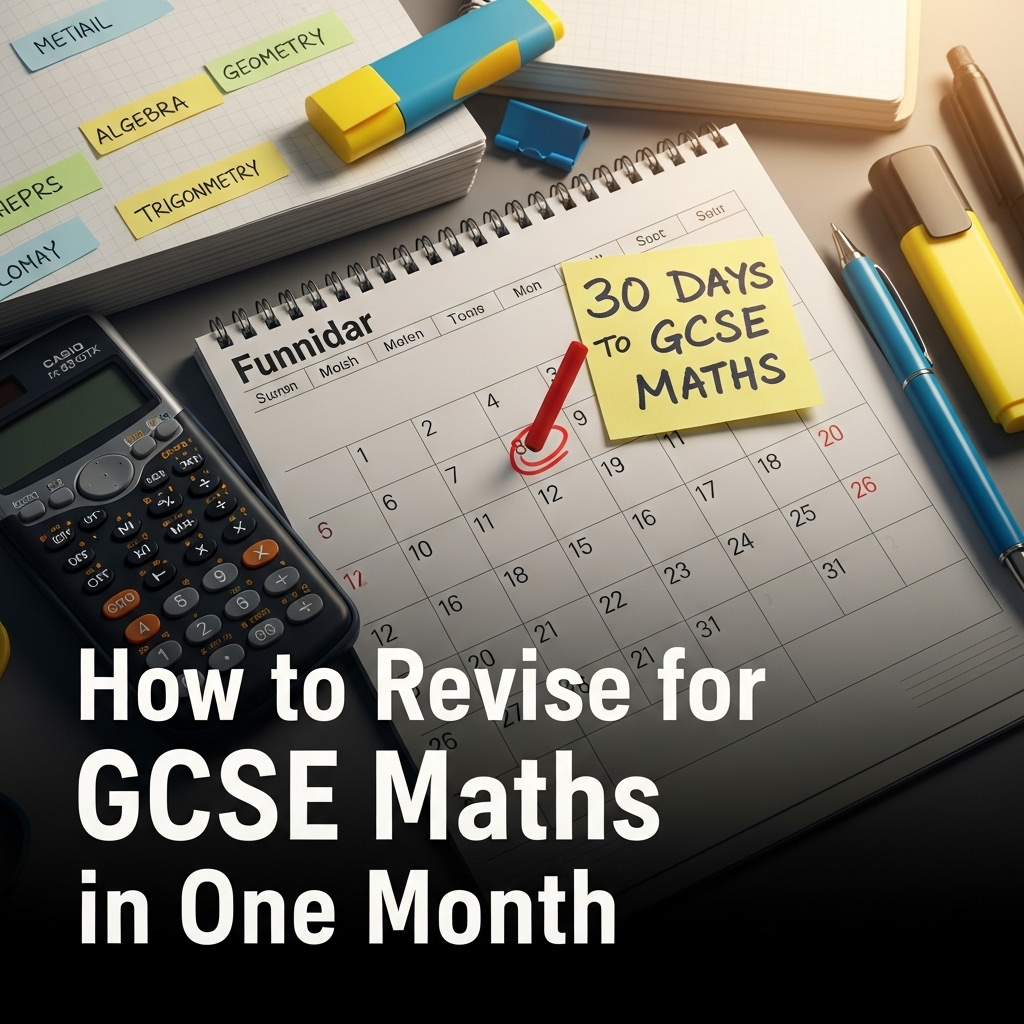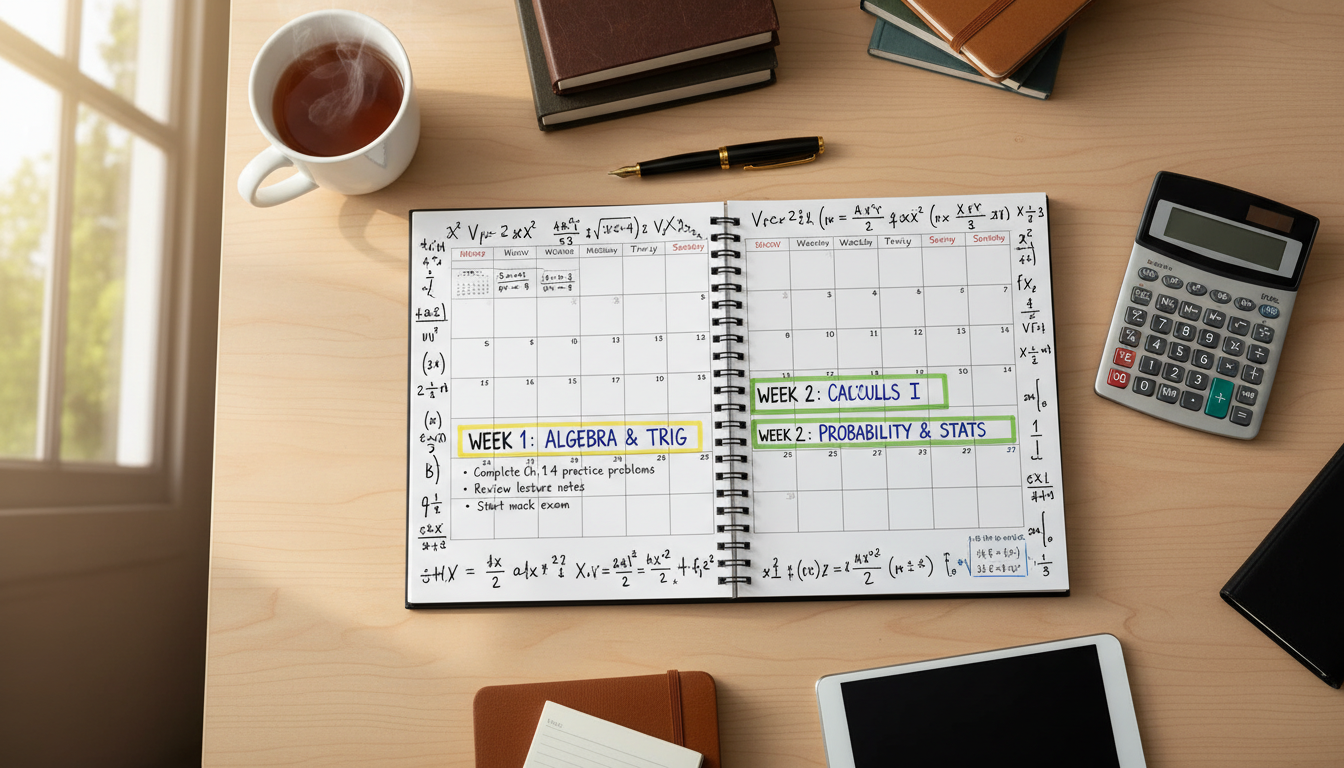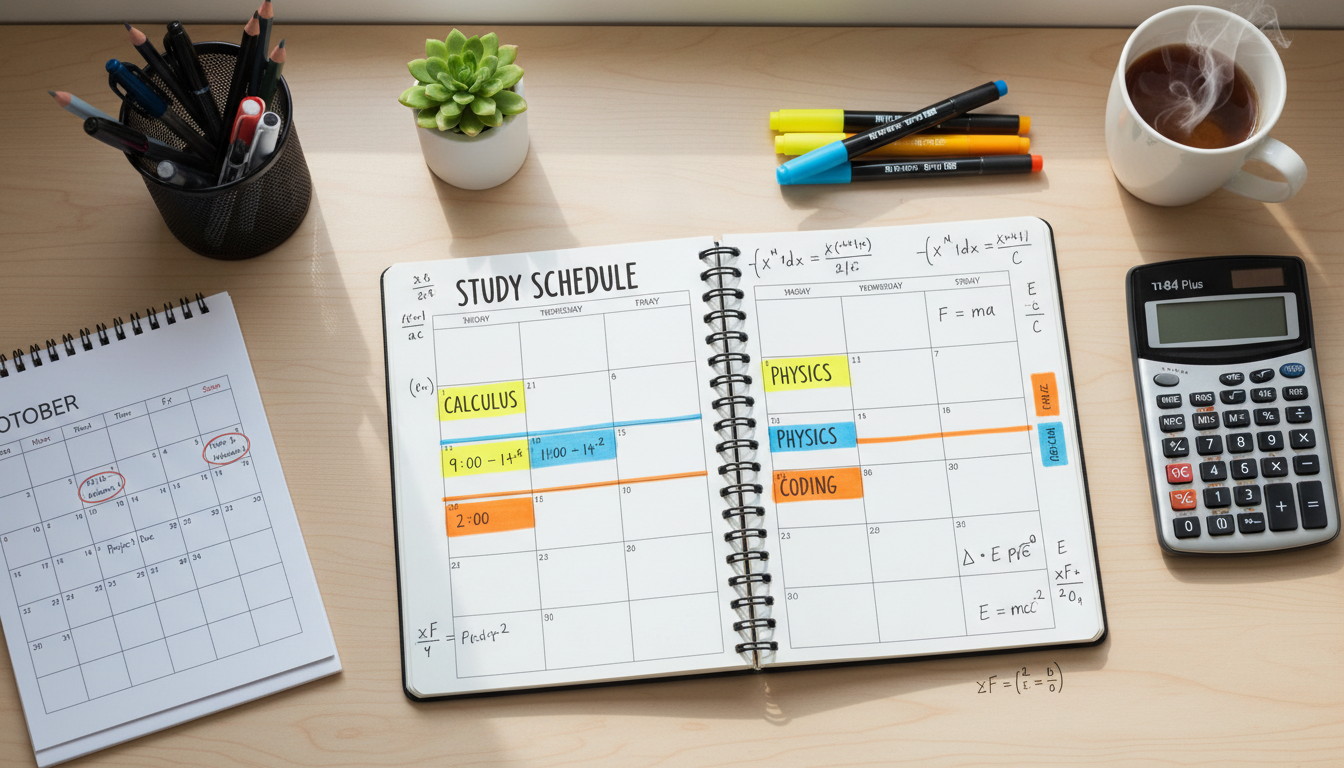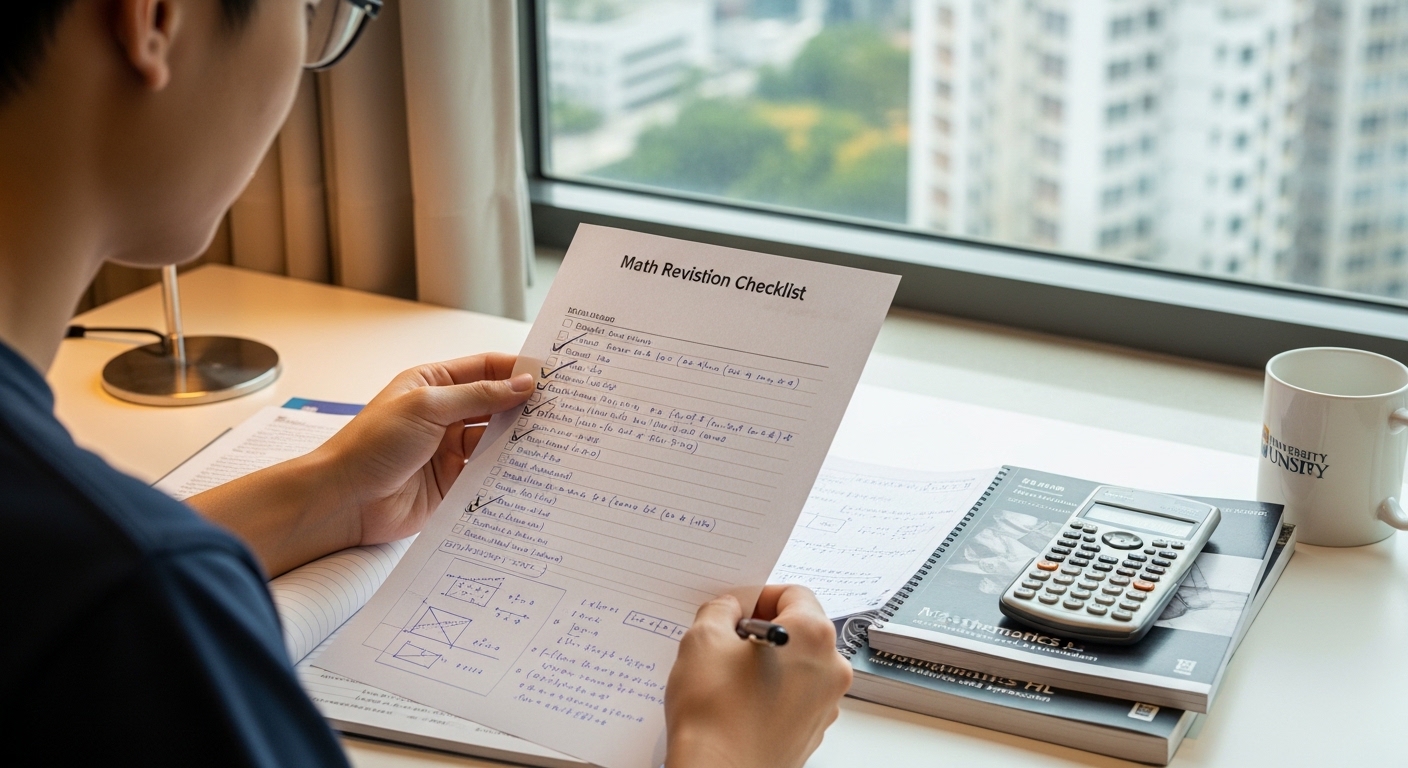Introduction to Revise GCSE Maths in One Month
So, you’ve got one month left before your GCSE math exam— and the pressure is on. Don’t panic.
With the right plan, focused effort, and the help of Mathzem’s free GCSE maths courses, you can still turn your preparation around and boost your grade significantly.
In this guide, you’ll learn how to revise GCSE maths in one month using proven strategies, a structured weekly plan, and smart tools designed by expert tutors.
Table of Contents
The 30-Day Mindset: Confidence Over Panic
The first step isn’t equations — it’s mindset.
Many students feel like a month isn’t enough, but in reality, 30 days of structured, consistent practice can dramatically improve your performance.
Key mental shifts:
- Focus on progress, not perfection.
- Engage in active study by testing yourself, rather than simply rereading notes
- Use trusted online tools like Mathzem that guide you step by step.
Why Planning Is Crucial
One month is short but manageable — if you plan properly.
A good plan gives you:
- A clear goal for each week
- Balanced time across all topics
- Regular practice using Mathzem’s interactive quizzes
Use Mathzem’s Free 30-Day GCSE Maths Revision Planner, available on their website, to structure your daily tasks and track improvement.
Week 1: Strengthen the Foundations
Focus: Number, Algebra, and Fractions
These are the building blocks of the exam.
Dedicate your first week to:
- Simplifying algebraic expressions
- Solving equations and inequalities
- Fractions, decimals, and percentages
- Ratio and proportion
Tip: Revise each concept for 30–45 minutes, then take a short quiz on Mathzem to test understanding.
Week 2: Geometry and Measurement
Focus: Shapes, Angles, Perimeter, and Volume
This week, dive into visual and applied maths:
- Learn all the geometry formulas (area, circumference, and volume).
- Review angle rules and trigonometry (SOH CAH TOA)
- Solve problems involving perimeters and areas.
Mathzem Geometry Resources:
Use Mathzem’s 3D shape visualiser and circle theorem lessons for instant clarity.
Week 3: Probability and Statistics
Focus: Understanding patterns and data
Topics to revise:
- Probability trees and relative frequency
- Mean, median, mode, and range
- Charts and graphs
- Scatter plots and lines for the best fit
Pro Tip: After learning a topic, explain it out loud or teach it to someone else — it strengthens memory through active recall.
Week 4: Practice and Mock Exams
Focus: Applying what you know
This final week is for consolidating everything.
Here’s how to spend your time:
- Attempt at least two full mock papers under timed conditions
- Please take the time to review your mistakes and learn from them.
- Revisit weak areas using Mathzem’s targeted video lessons
💡 Tip: Don’t skip questions you find hard — make a note, review the topic on Mathzem, then retry.
Daily Study Schedule
| Time | Task |
|---|---|
| 8:30 – 9:00 | Quick review of yesterday’s topic |
| 9:00 – 10:30 | Study new topic (Mathzem video + practice) |
| 10:30 – 10:45 | Short break |
| 10:45 – 12:00 | Practice questions or past paper |
| 12:00 – 13:00 | Lunch and rest |
| 13:00 – 14:30 | Review mistakes and notes |
| 14:30 – 15:00 | Short quiz on Mathzem |
| Evening | Light revision (flashcards or formula recall) |
This routine ensures daily consistency without burnout.
Using Mathzem’s Free Revision Resources
Mathzem is the best all-in-one GCSE maths revision hub.
Here’s how to use it effectively during your one-month plan:
✅ Video lessons: Watch topic-by-topic tutorials.
✅ Interactive quizzes: reinforce what you’ve just learnt.
✅ Past paper practice: With auto-marked questions and instant feedback.
✅ Progress tracking: See how you improve each week.
Instead of jumping between apps or YouTube, you can revise everything in one place — for free.
Smart Revision Strategies
To make your study sessions more efficient, apply these evidence-backed methods:
- Active recall: Test yourself instead of rereading notes.
- Spaced repetition: Review old topics every 3–4 days.
- Interleaving: Mix topics (e.g., algebra + geometry) to strengthen memory.
- Timed practice: Always simulate exam conditions.
Common Mistakes to Avoid
❌ Don’t just watch videos without practicing.
❌ Avoid skipping weak areas because they seem “too hard”.
❌ Don’t cram the night before exams — it hurts retention.
✅ Instead, use Mathzem’s guided plan for balanced revision.
Exam-Day Preparation
The night before:
- Sleep at least 7 hours.
- Prepare your calculator, pens, and ID.
- Review formula sheets briefly.
- Stay calm — your month of preparation will pay off.
During the exam:
- Read every question carefully.
- Highlight key information.
- Show your work for method marks.
How Mathzem Accelerates Your Success
Mathzem isn’t just another website — it’s a platform built by experienced GCSE maths tutors who understand what students need most in their final month.
With free courses, practice quizzes, and progress reports, Mathzem helps students revise smarter, not longer.
🎯 Whether you’re aiming for a pass or pushing for a grade 9, Mathzem’s 30-day revision system can help you get there faster.
👉 Visit Mathzem.com to access your free GCSE maths revision course today.
FAQs About Revise GCSE Maths in One Month
Can I really revise GCSE maths in one month?
Yes! With structure and discipline, one month is enough to cover all key topics and improve your grade.
How many hours a day should I study?
Aim for 3–4 hours of focused study with short breaks and daily Mathzem quizzes.
Is online revision better than books?
A mix of both works best, but online tools like Mathzem offer instant feedback and visual explanations.
What’s the best way to test my progress?
Consider taking one mock exam each week, marking it, and recording your improvement.
Conclusion
You don’t need six months to prepare — you need a plan, commitment, and the right tools.
With Mathzem’s free GCSE maths revision planner, topic lessons, and self-assessment quizzes, you can turn 30 days into a powerful final push toward exam success.
🎯 Start your one-month challenge today!
👉 Access free GCSE maths revision courses on Mathzem.






